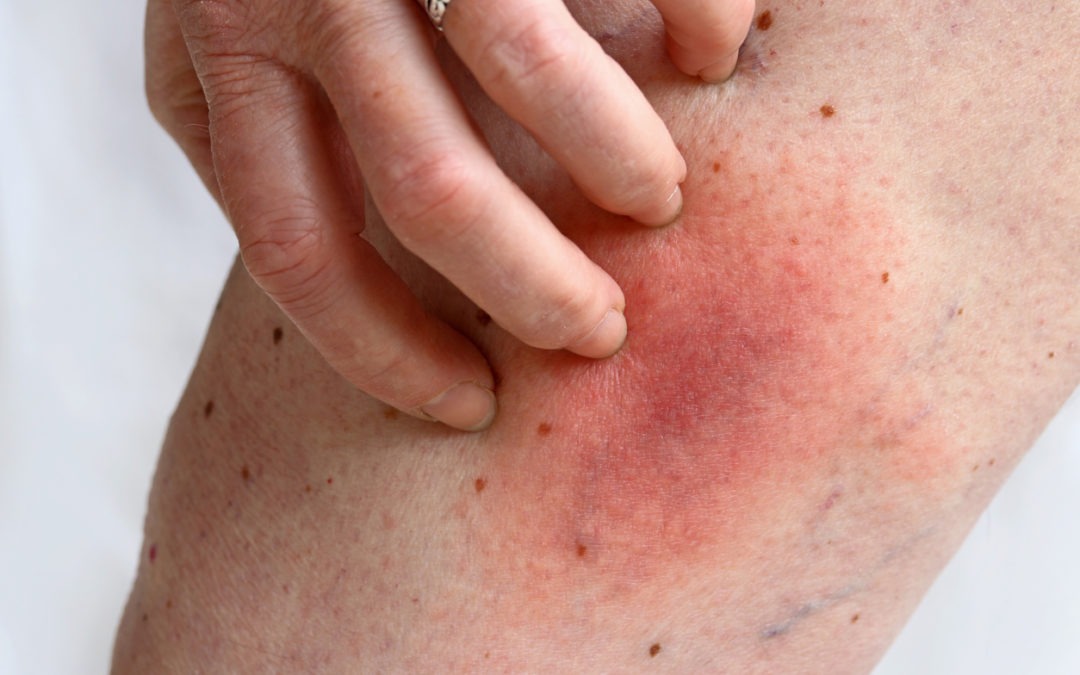Varicose veins are bad enough on their own, but they can come with an additional side effect: varicose vein eczema. Also known as stasis dermatitis, this can be a long-lasting eczema skin condition, most often affecting the lower legs.
Reasons Why Your Varicose Veins Are Itchy
Varicose veins are a common condition, affecting 3 in 10 adults, most often in the foot and leg portion of the body. And it is not at all uncommon for those with the condition to develop varicose vein eczema. One of the most common symptoms of this is having skin around the varicose veins that is dry, irritated, and above all, itchy.
There are additional symptoms to varicose vein eczema. This includes feeling like your legs are heavy and aching after standing for a long period of time. Or at the end of a long day finding immediate relief after a night’s sleep. The problems can get worse over time, extending up the calf and leading to dry, cracked skin. It can also lead to open sores on the lower calf and feet.
How Varicose Eczema Forms
Varicose vein eczema is often caused by pressure on the leg veins. When the valves within veins cease to function properly, bodily changes appear. Blood may leak down instead of being pumped back up through the circulatory system. When the increased pressure on the veins cause liquids to leak out into surrounding tissue, it’s believed that an immune reaction may lead to eczema forming.
There are some groups for which there is an increased risk of forming varicose eczema. Because those with varicose eczema often have varicose veins, and that is most prevalent amongst women, so is this kind of eczema. Other conditions that lead to a greater risk include:
- Obesity
- Age
- Pregnancy
- Blood clots or (DVT) deep vein thrombosis
Ways to Treat the Symptoms
Doing nothing when faced with varicose vein eczema can lead to deeply uncomfortable and even painful results. There are several ways to treat the symptoms, including some over-the-counter remedies as well as changes to lifestyle.
Many people choose to use moisturizers to combat the resulting dryness of their skin. Common topical eczema treatments can provide relief from the itching. Changes in lifestyle such as keeping more active and performing leg lifts can reduce pressure on the veins in the leg. You can also wear compression socks.
Treating the Source of the Problem
But these problems are often only treating the symptoms of varicose vein eczema. There is a way to battle the eczema at its source by tackling the varicose veins themselves. Doctors who are specifically trained to treat conditions of veins offer a hope of exterminating the eczema and the varicose veins themselves.
Schulman Vein’s Exceptional Vein Doctor in Long Island
For those looking for vein treatment in the greater New York area, please Meet Our Vein Physicians in Long Island, NY. Click here to Schedule an appointment. We offer the very best in phlebology treatments because We Only Do Veins.

